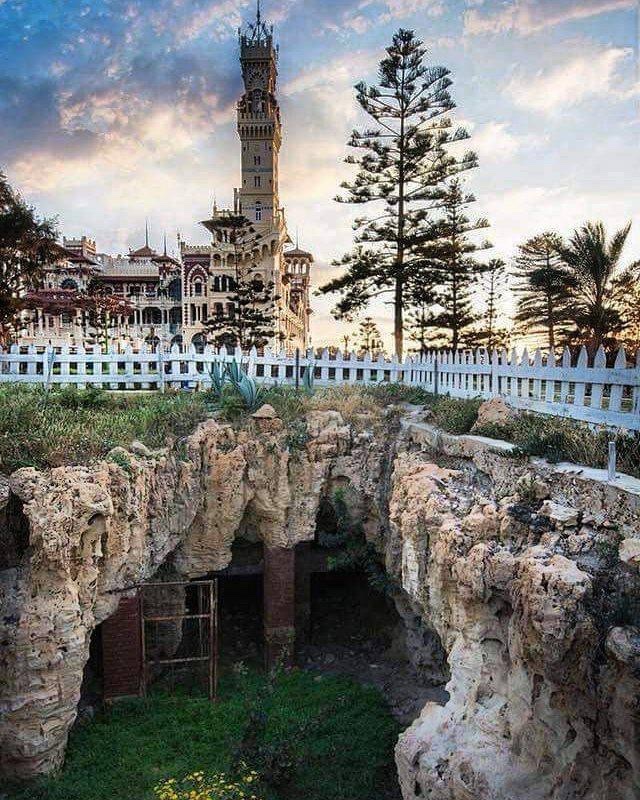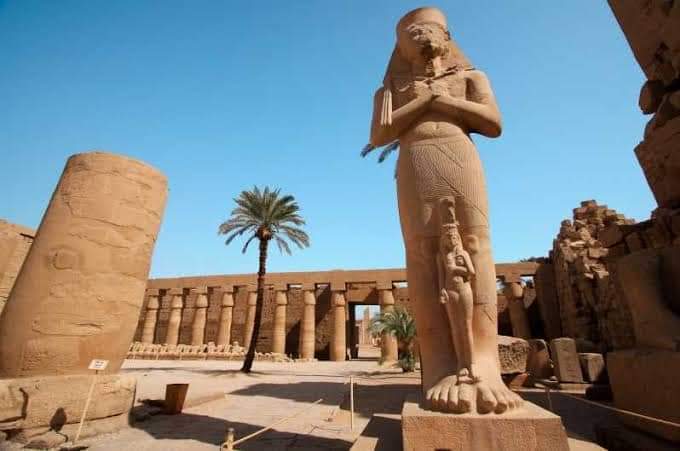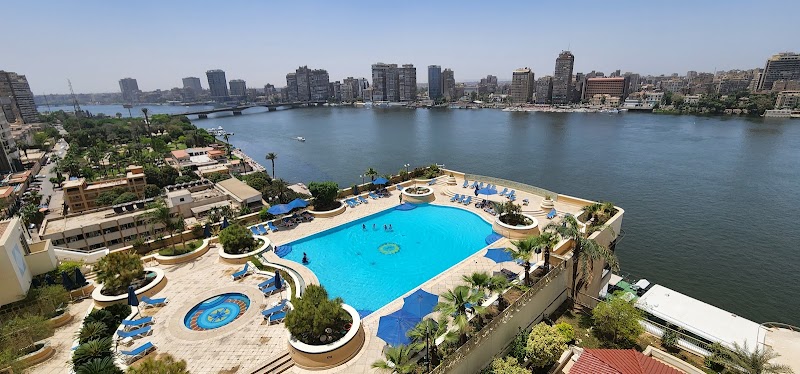Welcome to Egypt
With over 5,000 years of history,
Egypt, one of the world's most ancient civilizations, is a real gem for history enthusiasts. From the awe-inspiring Pyramids of Giza to the breathtaking Abu Simbel Temples to the mystifying Valley of the Kings, Egypt stands as a living museum offering an unrivalled journey back in time.
Our interactive tourist map of Egypt is your ultimate guide for navigating this timeless destination. More than a tool for finding your way around, it's your personal compass to Egypt's enchanting history, culture, and captivating wonders. With this map, the heart of Egypt is at your fingertips.
What to see and do with our map of Egypt with tourist attractions
Egypt, with its timeless allure, houses a myriad of attractions offering unique experiences beyond its ancient history and iconic pyramids. From the bustling bazaars of Cairo to the tranquil beauty of the Siwa Oasis, Egypt unveils a world of wonders that are sure to captivate and inspire.
Delve into the Wonders of Cairo
Starting your Egyptian adventure in Cairo, the nation's vibrant heart, is like stepping into a fascinating tableau of modernity intertwined with tradition.
The city's eclectic mix of towering minarets, labyrinthine souks, and contemporary architecture paints a vibrant picture of Egypt's evolution over the centuries. While in Cairo, don't miss the enchanting spectacle of the whirling dervishes at the Wekalet El Ghouri Arts Center, an experience that transcends the usual tourist path. If you're keen on discovering more about the bustling life of Cairo, check out our detailed
tourist map of Turkey for more insights.
Experience the Serenity of the Siwa Oasis
Escape the hustle and bustle of city life to the tranquil beauty of the Siwa Oasis.
This secluded paradise, nestled in the Western Desert, is a haven of palm-fringed lagoons, ancient ruins, and warm Berber hospitality. The awe-inspiring sight of the Shali Fortress, a monumental structure built entirely of salt and mud, attests to the ingenious adaptability of the Siwan people. This serene retreat is a world apart from Egypt's bustling cities, offering a glimpse into a timeless way of life. To learn more about such peaceful retreats, you can take a look at our
tourist map of the Peace.
Discover the Underwater Treasures of the Red Sea
While Egypt's historical allure is undeniable, its natural wonders are equally enchanting.
Dive into the crystal-clear waters of the Red Sea to discover a vibrant underwater world teeming with colorful coral reefs and exotic marine life. The cities of Hurghada and Sharm El Sheikh are gateways to this aquatic paradise, offering diving experiences for adventurers of all skill levels.
Unearth the Mysteries of the White Desert
Venture off the beaten path and into the surreal landscapes of the White Desert.
This stark expanse of chalk formations, shaped by the forces of wind and water over millennia, is a mesmerizing spectacle that feels like stepping onto the surface of another planet. As the sun sets, the white monoliths take on a golden hue, creating a mystical atmosphere that is sure to leave a lasting impression.
Explore the Modern Marvels of Alexandria
Last but not least, head to the Mediterranean city of Alexandria.
Known as the "Pearl of the Mediterranean", this vibrant city blends ancient history with a modern cosmopolitan flair. While the ancient Lighthouse of Alexandria is no more, the ultra-modern Bibliotheca Alexandrina stands as a symbol of the city's continuous thirst for knowledge and cultural exchange. This architectural marvel, paying homage to the famed ancient library of Alexandria, testifies to Egypt's ability to reinvent itself while honoring its rich past. To explore more such modern marvels across the globe, you might want to refer our
tourist map of England.
From its vibrant cities to its serene landscapes, Egypt offers a diverse range of experiences that go beyond its historical allure.
Whether you're a history buff, an adventure seeker, or simply a lover of unique experiences, Egypt has something new and exciting to discover, always.
Booking.com
Practical Information for Your Egyptian Adventure
Transportation and Mobility
The most effective way to traverse Egypt is by using its extensive network of trains, buses, and taxis. The train system, managed by Egyptian National Railways, connects major cities like Cairo, Alexandria, and Luxor with regular services. Ticket prices range from EGP 30 to EGP 150 based on the class and distance.
Buses form a more affordable option, with ticket prices starting from EGP 10. For short distances within cities, taxis and the increasingly popular ride-hailing apps like Uber and Careem are available.
Ensure the meter is running when you board a taxi to avoid overcharging.
Schedules and Prices
Most Egyptian museums and archaeological sites operate from 9:00 AM to 5:00 PM, with some opening as early as 7:00 AM during the peak season.
Entry ticket prices vary depending on the site, but you can expect to pay between EGP 50 and EGP 200. For the iconic Pyramids of Giza, the standard ticket price stands at EGP 160.
Many attractions offer discounted tickets for students, so don't forget your student ID if you have one! Also, many sites levy additional charges for photography, so keep some spare change handy.
Safety Tips
In Egypt,
safety should be your priority, just like in any other travel destination. While Egypt is generally safe for tourists, it's always wise to stay alert and aware of your surroundings.
Avoid walking alone late at night, especially in less crowded areas, and keep your belongings secure.
Having a local SIM card for emergency calls is also recommended. You can purchase these at the airport on arrival. Lastly, always inform someone of your travel plans for the day, especially if you're venturing outside the main cities.
Practical Recommendations
The best time to visit Egypt is between October and April when the temperatures are cooler. This is the peak tourist season, so expect crowds at major attractions.
Consider booking your accommodation and tours in advance to secure the best deals.
Remember to dress modestly, particularly when visiting religious sites or in smaller, conservative towns. Women, in particular, should avoid wearing revealing clothes. Lastly, don't forget to pack a hat, sunscreen, and plenty of water to stay hydrated under the hot Egyptian sun.
Frequently Asked Questions about Visiting Egypt
Let's delve into some of the most common queries travelers have about Egypt that have not been addressed yet. These questions will provide you with further insights into the unique aspects of this fascinating destination.
1. Can I visit the desert regions independently, or do I need to join a tour?
While it's possible to explore Egypt's desert regions independently, joining a guided tour for safety and logistical reasons is highly recommended. The desert can be a challenging and unpredictable environment, and local guides have the necessary knowledge and experience to ensure a safe and enjoyable trip. Plus, they can introduce you to hidden gems that you might miss on your own.
2. How can I respect local customs and traditions during my visit?
Being a predominantly Muslim country, it's important to respect the customs and traditions of Egypt. Dress modestly, particularly when visiting religious sites. Women should cover their shoulders and knees, and men should also avoid wearing shorts. Avoid public displays of affection, and always ask permission before photographing people.
3. What unique culinary experiences should I not miss in Egypt?
Egypt offers a diverse range of culinary experiences, from street food to fine dining. Don't miss trying local dishes like koshary (a mix of pasta, rice, lentils, and tomato sauce), ful medames (mashed fava beans), and molokhia (a soup made from jute leaves). For a sweet treat, try basbousa (a semolina cake soaked in syrup), and wash it all down with a refreshing cup of hibiscus tea.
4. Can I take photographs inside the museums and archaeological sites?
Photography policies vary at different museums and archaeological sites in Egypt. Some places allow photography without flash, while others prohibit it altogether. It's best to check the specific rules at each site or ask a staff member for clarification. Always respect these guidelines to help preserve Egypt's precious heritage.
5. What are some lesser-known historical sites that are worth visiting?
Apart from the renowned landmarks, Egypt is home to many lesser-known historical sites that are equally captivating. These include the Step Pyramid of Djoser in Saqqara, the Monastery of St. Simeon in Aswan, and the Greco-Roman monuments in Al Minya. These off-the-beaten-path locations offer a more tranquil and intimate exploration of Egypt's rich history.
6. Are there any sustainable travel practices I should follow in Egypt?
As a responsible traveler, you can contribute to Egypt's preservation and sustainability. Use refillable water bottles to minimize plastic waste, respect the natural and historical sites by not littering or damaging them, support local businesses by buying handmade crafts, and consider using public transport or walking when possible to reduce carbon footprint.



